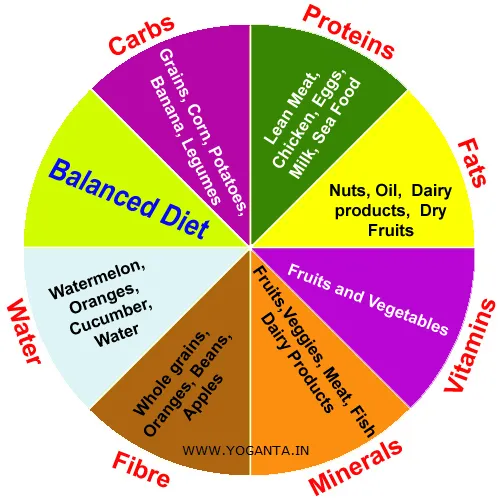When it comes to maintaining a healthy lifestyle, one of the most important factors to consider is your diet. Eating a balanced diet is crucial for overall health and well-being. A balanced diet consists of a variety of foods that provide essential nutrients to your body, helping you maintain a healthy weight, boost your energy levels, and prevent chronic diseases.
What is a Balanced Diet?
A balanced diet includes a mix of different food groups, such as fruits, vegetables, whole grains, lean proteins, and healthy fats. Each food group offers unique nutrients that your body needs to function properly. By incorporating a variety of foods into your diet, you can ensure that you are getting all the essential vitamins, minerals, and antioxidants that your body needs to thrive.
The Benefits of a Balanced Diet
1. Weight Management
One of the key benefits of a balanced diet is weight management. By eating a variety of nutrient-dense foods, you can maintain a healthy weight and avoid obesity. Fruits and vegetables are low in calories but high in fiber, which can help you feel full and satisfied without overeating. Whole grains and lean proteins can also help keep you full and prevent cravings for unhealthy snacks.
2. Boosted Energy Levels
Another benefit of a balanced diet is increased energy levels. When you fuel your body with nutritious foods, you provide it with the energy it needs to function optimally. Foods rich in carbohydrates, such as whole grains and fruits, can provide a steady source of energy throughout the day. Healthy fats, such as avocados and nuts, can also help boost your energy levels and improve brain function.
3. Disease Prevention
A balanced diet can help prevent chronic diseases such as heart disease, diabetes, and cancer. By eating a variety of fruits and vegetables, you can reduce your risk of developing these diseases due to their high antioxidant content. Whole grains can also help lower cholesterol levels and reduce the risk of heart disease. Additionally, consuming lean proteins can help maintain muscle mass and prevent conditions such as osteoporosis.
4. Improved Digestion
Eating a balanced diet rich in fiber can improve digestion and prevent digestive issues such as constipation and bloating. Fiber-rich foods, such as fruits, vegetables, and whole grains, can help regulate bowel movements and promote a healthy gut microbiome. This can improve overall gut health and reduce the risk of gastrointestinal disorders.
Tips for Maintaining a Balanced Diet
Here are some tips to help you maintain a balanced diet and reap the benefits of healthy eating:
1. Eat a Variety of Foods
Include a mix of fruits, vegetables, whole grains, lean proteins, and healthy fats in your meals to ensure you are getting all the essential nutrients your body needs.
2. Limit Processed Foods
Avoid processed foods high in sugar, salt, and unhealthy fats, as they can contribute to weight gain and increase the risk of chronic diseases.
3. Stay Hydrated
Drink plenty of water throughout the day to stay hydrated and support overall health. Limit sugary drinks and opt for water, herbal teas, or infused water instead.
4. Practice Portion Control
Avoid overeating by practicing portion control and listening to your body’s hunger cues. Eat slowly and mindfully to prevent overconsumption.
5. Plan Ahead
Plan your meals ahead of time to ensure you have healthy options available and avoid the temptation of fast food or unhealthy snacks.
Conclusion
A balanced diet is the key to maintaining a healthy lifestyle and reaping the benefits of nutritious eating. By incorporating a variety of foods into your diet, you can manage your weight, boost your energy levels, prevent chronic diseases, and improve digestion. Follow the tips outlined above to maintain a balanced diet and support your overall health and well-being.
#Key #Healthy #Lifestyle #Benefits #Balanced #Diet



